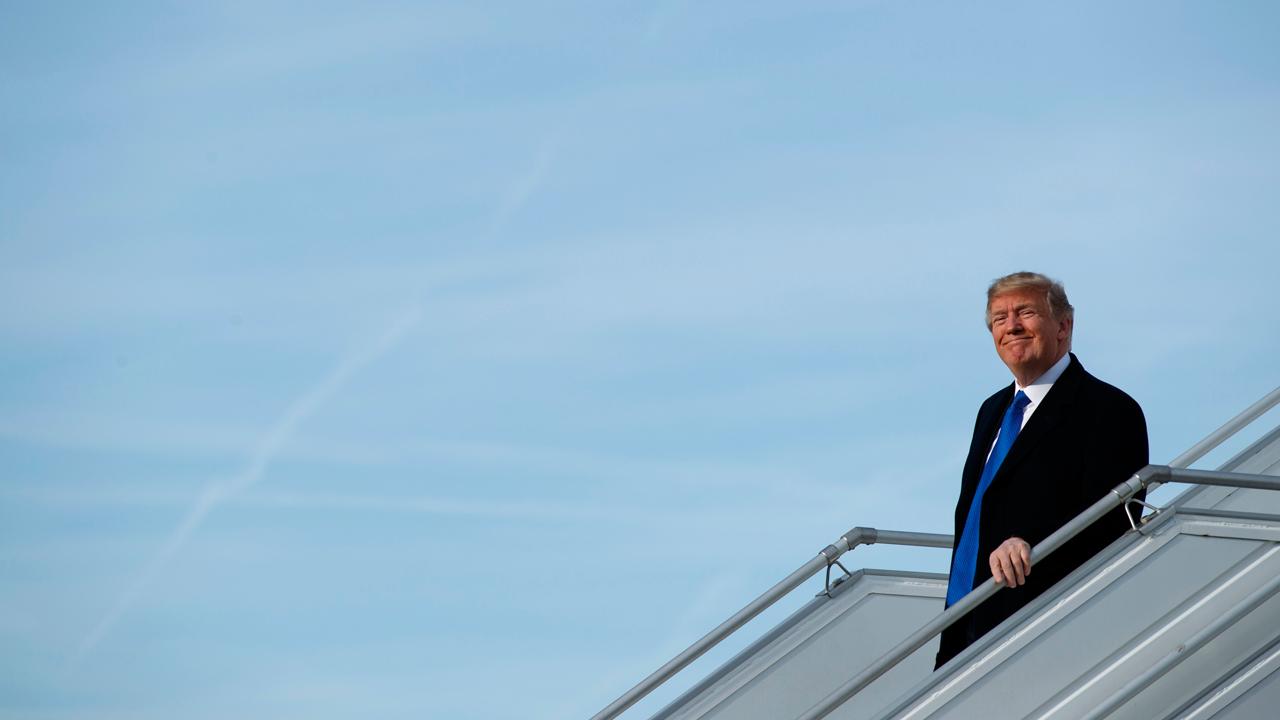Trade-war fears cast shadow over stock market
President Donald Trump's announcement of steel and aluminum tariffs makes the notion of a trade war a lot less hypothetical--and that could mean investors are in for a bumpy ride in the week ahead. Not only must investors contend with the possibility of higher inflation, higher interest rates and possibly more aggressive monetary policy, but they must also weigh the possibility that the benefits of stimulative tax cuts could be at least partly offset by the fallout from increased trade tensions. "If several of the world's largest economies fall into a trap of ever-escalating trade sanctions or self-imposed embargoes, there is some modest probability (perhaps 10%-20%) that global growth will be truly undermined," wrote Stephen Wieting, global chief investment strategist at Citi Private Bank, in a Friday note. Also, the potential for increased tariffs may further aggravate the "growth versus inflation balance" for the U.S. while negatively impacting economic growth elsewhere, Wieting said. The stock market swooned in the past week, with the main benchmarks posting weekly losses. The industrials sector was hit the hardest. The Dow Jones Industrial Average tumbled for four straight sessions and posted a 3% loss over the week. The S&P 500 industrials sectors (XLI) fell 3.3% over the week. The S&P 500 fell sharply Thursday after the tariff announcement, but recouped a bit of the lost ground Friday. For the week, the S&P posted a loss of 2%. The Nasdaq Composite logged a 1.1% weekly loss. Implied volatility on the S&P 500, as measured by the Cboe Volatility Index rose 19% to 19.59, compared with a reading near 11 for most of 2017. Kristina Hooper, chief global markets strategist at Invesco, said there is still upward bias in stocks, but she expects only modest returns this year. "Tariffs are like gremlins, they multiply quickly given a conducive environment. And when it comes to the stock market performance, much will depend on how retaliation occurs," Hooper said. A trade wars would add a layer of complexity to policy deliberations by the already burdened Federal Reserve, Hooper said. "Full blown trade wars put the Fed between a rock and a hard place, just like the Bank of England finds itself right now," Hooper said. Federal Reserve Chairman Jeremy Powell, during his inaugural congressional testimony last week, indicated that an overheating economy would warrant faster pace of rate increases. But the Fed would really like to avoid inducing a recession in their quest to keep inflation low. Powell, it should be noted, also played down wage pressures, saying he saw no sign of significant pressures. Some analysts expect that cooler heads in the administration will prevail in the end. "The announcement of tariffs reminds me of the episode with border-adjusted tax, which was watered down after Trump spoke with lawmakers and governors from different states. I expect the same thing happening with tariffs," said Mitchell Goldberg, president at ClientFirst Strategy Inc. "But the worst case scenario, when there is retaliation, is not good for stocks," Goldberg said. Next week, investors will get to assess important data points including monthly jobs report on Friday, which will include numbers on wage inflation. Several Fed officials will be on a speaking circuit next week, including New York Federal Reserve Bank President William Dudley, Federal Reserve Vice Chairman Randal Quarles, Federal Reserve Governor Lael Brainard, Dallas Federal Reserve Bank President Robert Kaplan, Atlanta Federal Reserve Bank President Raphael Bostic and Chicago Federal Reserve Bank President Charles Evans. The latest Beige Book, a compilation of anecdotal information on economic conditions across Federal Reserve districts is due at 2 p.m. Eastern on Wednesday, March 7. The European Central Bank's policy meeting is scheduled for Thursday, March 8, though experts don't expect any major policy shifts.




















